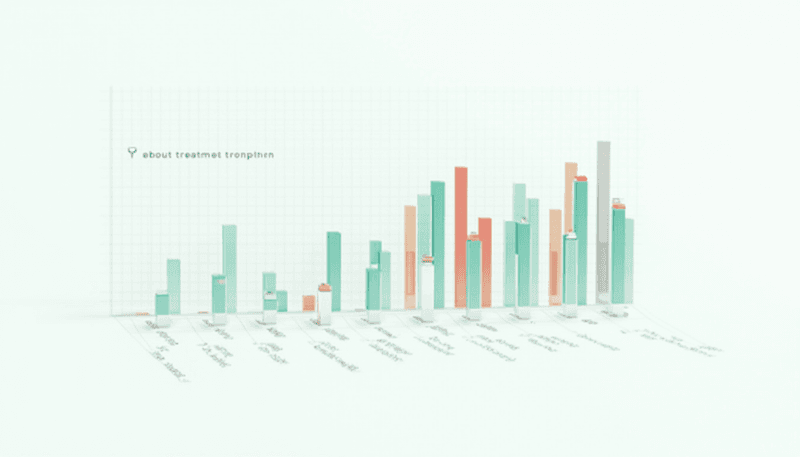HRT Truth: What Women Need Know

Only 11.9% of women use hormone replacement therapy (HRT) during menopause, yet over 68% experience significant symptoms that impact their daily lives. This striking disconnect emerged from a recent scientific study examining women's experiences with HRT and doctors' approaches to prescribing it. As a medical professional who has witnessed countless women struggle with menopausal symptoms, these findings highlight a critical gap in women's healthcare that needs addressing.
Breaking Down the Information Barrier
One of the most notable findings from this research is that while 73.8% of women had heard about HRT, many received their information from media sources rather than healthcare professionals. In fact, 50.5% had never discussed HRT with a medical expert. This information gap leads to misconceptions and missed opportunities for treatment.
"Have you ever had a detailed conversation with your doctor about menopause and hormone therapy options?"
The study reveals that women with higher education levels and regular healthcare engagement were more likely to be informed about HRT options. This suggests that being proactive about your health education and maintaining regular doctor visits can significantly impact your access to treatment options.
Understanding the Doctor's Perspective
An intriguing aspect of the research showed that 94.3% of doctors believe HRT is the most effective treatment for menopausal symptoms, yet prescription rates remain low. The study found that while doctors rated their knowledge of HRT as "good" (96.3%), many felt that both patients and healthcare providers need more education about its benefits and risks.
Action Steps for Better Communication:
- Schedule an annual wellness visit specifically to discuss hormonal health
- Prepare a list of symptoms and concerns before your appointment
- Ask about both benefits and risks of HRT for your specific situation
- Request written information or reliable resources for further reading
The Experience of HRT Users
Among women who used HRT, the satisfaction rates were encouraging. The study found that 41.7% reported being very satisfied with their treatment, and 75% would recommend it to a friend. These numbers tell an important story about the potential benefits of HRT when properly prescribed and monitored.
Key Benefits Reported:
- Relief from vasomotor symptoms (hot flashes, night sweats)
- Improvement in sleep quality
- Better mood stability
- Enhanced quality of life
What's holding you back from exploring HRT as a treatment option? Is it fear, lack of information, or something else?
Taking Control of Your Menopausal Journey
The research highlights the importance of being an active participant in your healthcare decisions. Women who had regular check-ups and actively sought information about their health options were more likely to receive appropriate treatment for their menopausal symptoms.
Practical Steps for Self-Advocacy:
- Keep a symptom diary to track frequency and severity
- Research reputable medical sources about menopause and HRT
- Join support groups or online communities for shared experiences
- Consider seeking a second opinion if your concerns aren't adequately addressed
In my years of practice, I've seen how open dialogue about menopause can transform women's experiences. One patient, Sarah (name changed), initially hesitated to discuss her symptoms, believing they were just "part of aging." After a thorough discussion about HRT options, she made an informed decision to try treatment. Six months later, she reported feeling "like herself again."
"Every woman deserves to make informed decisions about her health based on facts, not fears."
The journey through menopause is unique for each woman, but it shouldn't be a silent struggle. Whether or not HRT is right for you, having accurate information and open conversations with healthcare providers is essential for making informed decisions about your health.
Today, take the first step: schedule an appointment with your healthcare provider specifically to discuss menopause and your treatment options. Your future self will thank you for being proactive about your health journey.

Dr. Marcus Anthony Bennett
Dr. Marcus Bennett is a Seattle-based freelance medical writer and consultant specializing in mid-aged women's health. With a background in internal medicine and over a decade of experience in preventive care, he is dedicated to making complex health topics accessible. Dr. Bennett completed his MD at Johns Hopkins School of Medicine and residency at the University of Washington. His empathetic and evidence-based approach combines traditional medical expertise with a focus on health disparities, often incorporating practical lifestyle advice. Known for his clear, engaging communication, Dr. Bennett provides actionable insights to empower his audience.






